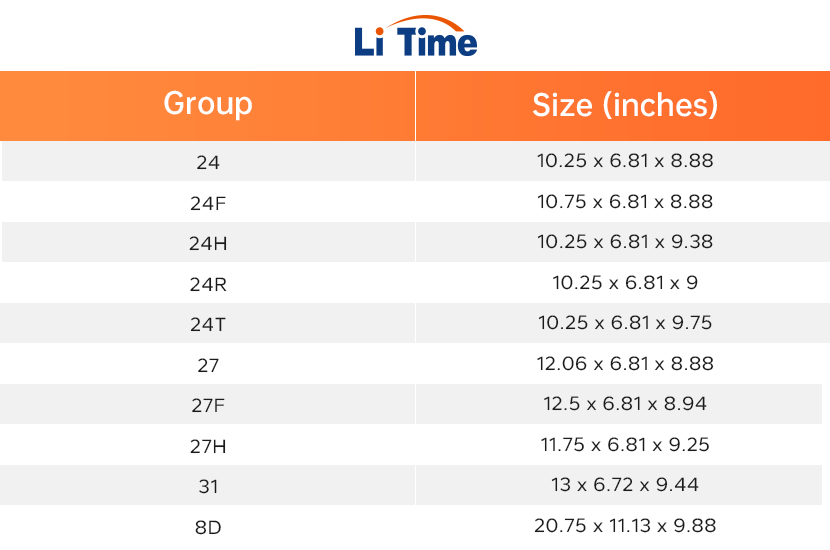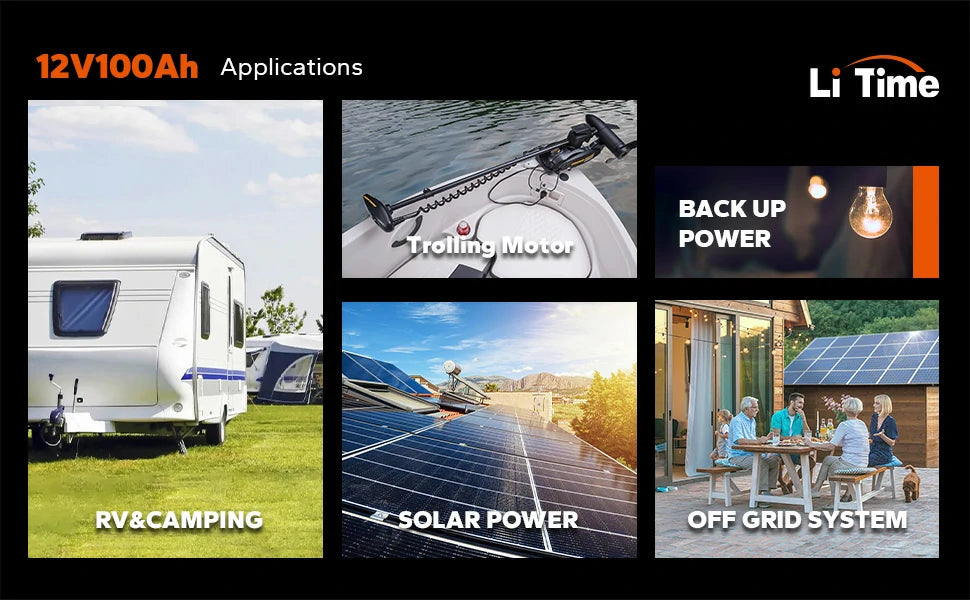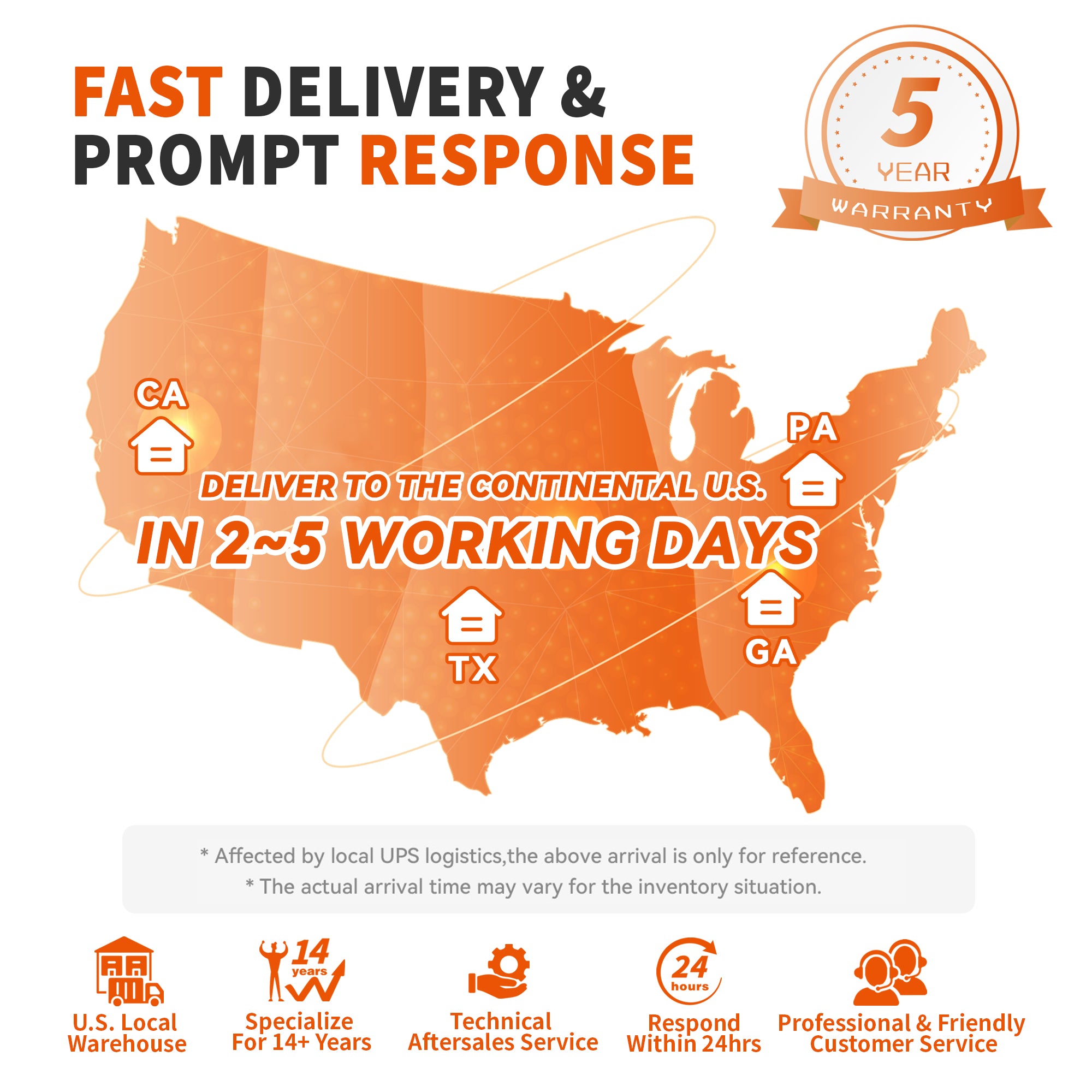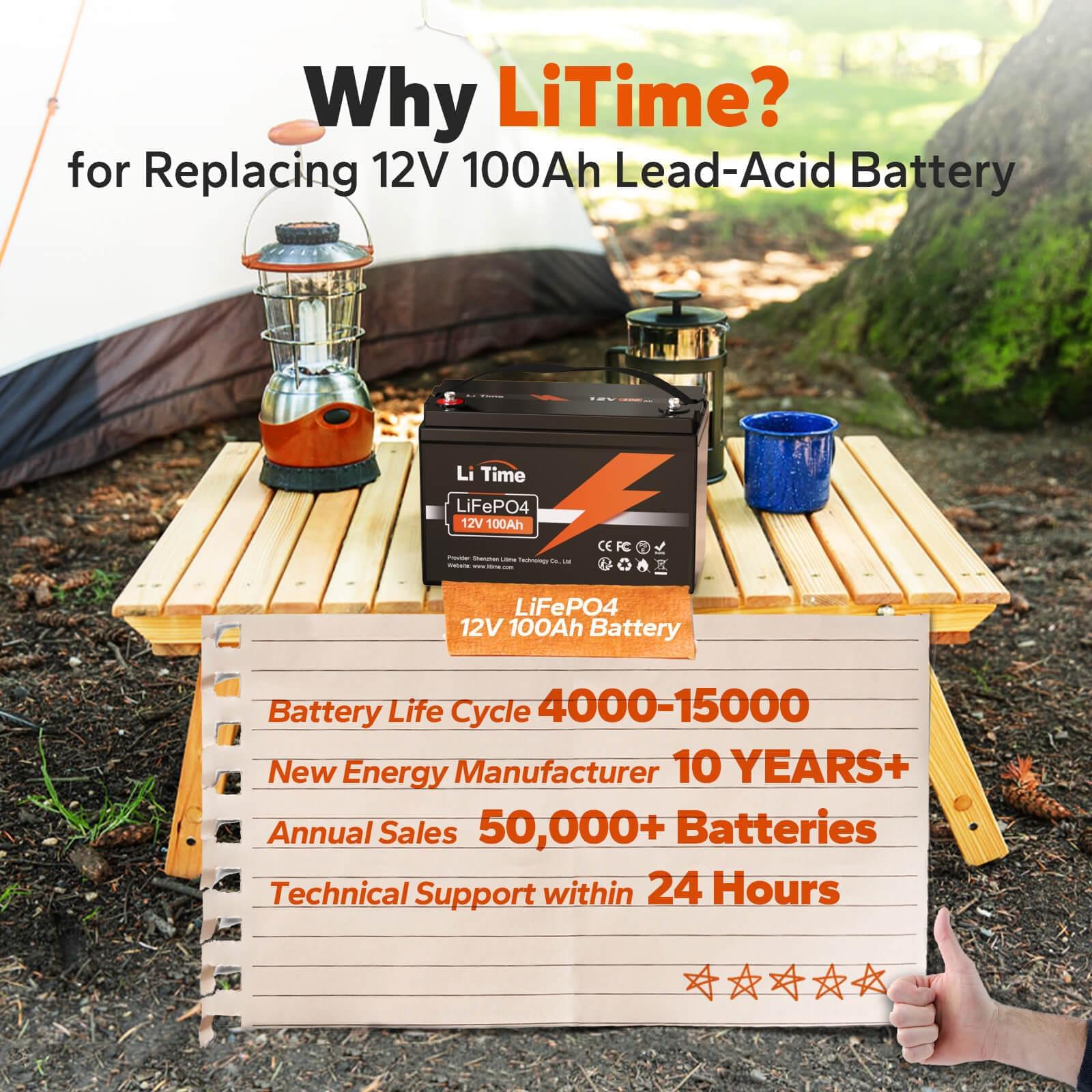When it comes to powering heavy-duty equipment and vehicles, Group 31 batteries are often the preferred choice. These robust energy storage solutions are widely used in commercial trucks, RVs, boats, tractors, and other applications that require reliable and long-lasting power.
In this article, we will delve into the features, benefits, and key considerations associated with Group 31 batteries.
Understanding Group 31 Batteries
Group 31 batteries are part of the Battery Council International (BCI) size groupings, which establish standardized dimensions for automotive batteries. These batteries are designed to deliver high-performance power for large vehicles and equipment, making them suitable for demanding tasks and extended usage periods.

Features of Group 31 Batteries
Size and Dimensions:
Group 31 batteries typically measure about 13 inches long, 6.8 inches wide, and 9.4 inches high. This larger size allows for increased capacity, providing ample electrical power to support heavy loads and prolonged usage.
Amp-Hour (Ah) Rating:
Group 31 batteries offer high Ah ratings, which refer to the amount of charge the battery can hold. Group 24 batteries typically have a capacity of 70-85 Ah (Ampere-hours) at a 20-hour rate. In contrast, Group 31 batteries offer higher capacity, usually between 95-125 Ah at a 20-hour rate. This makes them ideal for power-intensive applications or scenarios that require a longer battery life. With higher Ah ratings, these batteries can sustain higher electrical demands for longer periods, making them ideal for applications that require consistent and uninterrupted power.
Benefits of Group 31 Batteries
Durability and Longevity:
Group 31 batteries are built to endure rugged conditions and harsh environments. Constructed with heavy-duty components and advanced technologies, they exhibit exceptional resistance to vibrations, impacts, and temperature changes. This ensures reliable performance and a longer service life.
High Cranking Power:
Group 31 batteries provide excellent cold cranking amps (CCA), which is crucial for starting large vehicles or heavy equipment in colder climates. The high CCA rating enables quick ignition, even in low-temperature conditions, ensuring that the battery can deliver sufficient power to start the engine reliably.
Deep Cycling Capability:
Group 31 batteries excel in their ability to handle deep discharges and recharge efficiently. This deep-cycle capability makes them suitable for applications that require continuous power over extended periods, such as recreational vehicles (RVs) or boats. They can withstand repeated discharging and recharging cycles without compromising their performance or lifespan.
Applications of Group 31 Batteries
Group 31 batteries are widely used in various applications, mainly in heavy-duty vehicles and equipment. Here are some common applications where Group 31 batteries are utilized:
Commercial Trucks
Group 31 batteries are commonly found in large commercial trucks, such as semis, delivery trucks, and dump trucks. These batteries provide the power needed to start the engine and operate various electrical components.
Construction Equipment
Group 31 batteries are popular for construction machinery, including excavators, loaders, bulldozers, and cranes. These batteries can withstand the demanding conditions and provide reliable power to start and operate heavy-duty equipment.
Recreational Vehicles (RVs)
Group 31 batteries are often used in RVs to power the vehicle's electrical system, including lights, appliances, and various onboard equipment. These batteries are designed to provide sufficient power for extended periods without requiring frequent recharging.
Agricultural Equipment
Group 31 batteries are essential in agricultural machinery, such as tractors, combines, and harvesters. These batteries offer the durability and cranking power needed to start engines in all seasons and power the equipment's electrical systems.
Marine Applications
Group 31 batteries are also suitable for marine vessels, like fishing boats, yachts, and sailboats. These batteries provide reliable power for starting engines, running essential onboard electronics, and powering various accessories.
Off-Road Vehicles
Group 31 batteries are ideal for off-road vehicles, such as ATVs, UTVs, and 4x4 trucks. These batteries are built to withstand rugged terrain and provide the high cranking power required for reliable engine starts in challenging environments.
Solar Power Systems
Group 31 batteries can be used in solar power systems for storing electrical energy. These batteries have deep cycling capabilities, allowing them to be charged and discharged repeatedly, making them suitable for storing solar-generated electricity.

Comparing Group 31 Battery Types By Chemistry
When it comes to choosing the right Group 31 battery, it's crucial to understand the features and benefits of each type. Let's examine four common types - lithium, AGM, Gel, and Flooded - to help you make an informed decision based on your specific needs.
Group 31 Lithium Batteries:
- Lightweight, reducing overall weight in applications
- High energy density provides ample power for demanding needs
- Fast charging and no maintenance required
- Exceptionally long lifespan of 8-10+ years with over 3,000 cycles, high quality lithium batteries like LiTime Group 31, has over 4000 cycles.
- Environmentally friendly and safe option
Group 31 AGM Batteries:
- Good vibration resistance and fast recharge capability
- Utilizes Absorbed Glass Mat (AGM) separator for electrolyte absorption
- Spill-proof and maintenance-free
- Lasts up to six years, making it a reliable power source
- Suitable for vehicles, boats, RVs, solar systems, and wind energy systems
Group 31 Gel Batteries:
- Deep cycle performance and vibration resistance
- Gel-like electrolyte provides spill-proof and maintenance-free operation
- Delivers high power outputs and offers versatility
- Lifespan similar to AGM batteries, lasting up to six years
- Ideal for recreational vehicles, marine applications, off-grid solar systems, and backup electricity supply
Flooded Lead Acid Group 31 Batteries:
- Widely used but becoming less popular due to higher-quality options available
- Require regular maintenance, including monitoring corrosion levels and electrolyte levels
- Shorter lifespan if not properly maintained
- Need consistent charging to ensure optimal performance
- Initially cost-effective but can be more expensive in the long run compared to other options like lithium
In conclusion, each Group 31 battery type has its own advantages and considerations. Lithium batteries excel in longevity and power, AGM batteries offer reliability and a variety of applications, Gel batteries provide deep cycling performance, and Flooded Lead Acid batteries are traditional but require more maintenance.
It's crucial to evaluate your specific requirements and make an informed choice based on the features and benefits of each type.
Comparing Group 31 Battery Types By Purpose
Group 31 batteries come in three main types: starting, deep cycle, and dual-purpose batteries.
Starting Batteries
Starting batteries, also known as SLI (Starting, Lighting, and Ignition) batteries, are specifically designed to provide short bursts of high power to start engines. These batteries have thinner lead plates and are optimized for delivering quick bursts of energy. They are commonly used in vehicles, boats, and other engine-powered equipment. Group 31 starting batteries should have a minimum of 1000 CCA (Cold Cranking Amps) and 1200 MCA (Marine Cranking Amps) to ensure they can deliver the necessary current even in cold temperatures.
Deep Cycle Batteries
Deep cycle batteries, on the other hand, are designed to provide a steady and consistent power output over a longer period. They are built with thicker plates and are capable of withstanding repeated deep discharge and recharge cycles. Deep cycle batteries are commonly used in applications that require a reliable and consistent source of power, such as marine vessels, RVs, golf carts, solar power systems, and electric vehicles.
All of the batteries from LiTime are deep cycles. For more information, read on deep cycle vs starting battery.

Dual-Purpose Batteries
Dual-purpose batteries offer a balance between starting power and deep cycle capabilities. These batteries are ideal for applications where both strong starting currents and decent deep discharge and deep cycle capabilities are needed. They fall between starting batteries, which prioritize quick bursts of power, and deep cycle batteries, which prioritize long-lasting power delivery.
For high-quality dual-purpose Group 31 lead-acid batteries, it is recommended to look for certain specifications. This includes a minimum of 900 CCA, which measures the maximum current a fully charged 12V battery can deliver for 30 seconds without the voltage dropping below 7.2V at 0°F. Additionally, a battery with a minimum of 200 minutes of Reserve Capacity (RC) is desirable. RC measures the number of minutes a fully charged battery can maintain a usable voltage while supplying a constant current before dropping below 10.5V. Lastly, a battery with a minimum capacity of 100 Amp-hours (Ah) is recommended, indicating the energy storage capacity of the battery.
In summary, Group 31 batteries are available in different types, including starting, deep cycle, and dual-purpose batteries. The specific type and specifications of the battery depend on the intended applications and power requirements.
Key Considerations for Group 31 Battery Purchase
Compatibility: Before purchasing a Group 31 battery, ensure that it is compatible with your specific vehicle or equipment. Consider factors such as terminal type, voltage requirements, and physical dimensions to ensure a proper fit and seamless integration.
Maintenance Requirements: Group 31 batteries vary in their maintenance needs. Some batteries may require periodic maintenance tasks such as electrolyte level checks or terminal cleaning. Alternatively, maintenance-free batteries are available, which eliminate the need for regular upkeep.
Brand Reputation and Warranty: When investing in a Group 31 battery, opt for reputable brands known for their quality and reliability. Consider warranties offered by different brands, as longer warranties often indicate confidence in the product's performance and durability. LiTime has been in the industry for more than 10 years, providing high-quality lithium batteries with best-budget price. Batteries from LiTime have 5-year warranty and professional technical support, a humanized return policy, quick responses within 24hrs, as well as easy-to-understand operation manuals and online services.

Deep Cycle Lithium Group 31 Battery Recommended
The LiTime 12V 100Ah LiFePO4 lithium battery, a premium option for your power needs. This battery features Grade A LiFePO4 cells, ensuring exceptional quality, higher energy density, stable performance, and greater power. With UL Test Reports confirming the highest level of safety, you can trust in its reliability.
One of the key advantages of this lithium battery is its impressive lifespan. With 4000+ cycles at 100% DOD (6000 cycles at 80% DOD and 15000 cycles at 60% DOD), this battery offers a remarkable 10-year lifetime. In comparison, traditional SLA/AGM batteries only provide 200-500 cycles and a 3-year lifespan.

Safeguarded by a built-in 100A BMS, this 12V 100Ah LiFePO4 battery is fully protected from overcharging, over-discharging, over-current, overheating, and short circuits. It also boasts excellent self-discharge rates and is IP65 waterproof, ensuring safety and reliability for both indoor and outdoor installations.
Versatility is another great feature of this battery. It can support up to four batteries in series and four in parallel (Max 4S4P), allowing you to create a powerful 48V 400Ah battery system, providing 20.48kWh of energy and a maximum load power of 20.48kW. Whether you're using it for RVs, solar power, home energy storage, or off-grid applications, this battery is sure to meet your needs.
Weighing just 24.25lbs, this 12V 100Ah LiFePO4 battery is only 1/5 the weight of a 12V 200Ah lead acid battery, making it incredibly lightweight and easy to carry. It charges faster and is more convenient to use, making it an excellent choice for outdoor camping and indoor installations.
Not only is this battery efficient and reliable, but it is also eco-friendly. It contains no toxic lead, acid, or heavy metals, making it a greener option. Additionally, it requires less maintenance than SLA/AGM batteries, saving you time and effort. With its longer lifespan and higher efficiency, this lithium battery offers a more cost-effective energy solution in the long run.
Please note that while this battery is compatible with marine applications, RVs, UPS, backup power, solar systems, and trolling motors with 30-70 lbs thrust, it is not suitable for use in golf carts or as a starting battery.
LiTime 12.8V 100Ah Max LiFePO4 Lithium Battery
If you need more capacity, take an eye on LiTime 12.8V 100Ah Max LiFePO4 Group 31 Lithium Battery. This battery is also built based on the size of group 31.
The LiTime 12.8V 100Ah Max Lithium Battery is a high-performance battery with a built-in 150A BMS and a maximum load power of 1920W. Its advanced battery management system provides protection against various risks, including over-charging, over-discharging, over-current, over-temperature, and short-circuit.
Featuring 2C rate square cells, this battery is capable of discharging at a maximum rate of 1.5C and charging at a rate of 1C. This makes it suitable for applications that require high currents. The battery is constructed using automotive-grade A cells, which offer higher energy density, stable performance, and a lower self-discharge rate.

With a capacity of 1280Wh, the LiTime 12.8V 100Ah Max battery is able to support a 1920W load, making it ideal for power-intensive scenarios. Additionally, these batteries can be connected in parallel and in series (up to 4P4S), allowing for the creation of a larger battery system with a total capacity of 51.2V 400Ah and a maximum of 20.48kWh energy storage. This configuration enables a maximum load power of 30.72kW.
Overall, the LiTime 12.8V 100Ah Max Lithium Battery offers a reliable and high-capacity power solution with advanced safety features, making it suitable for a range of applications requiring efficient and stable power supply.
Choose LiTime for a better energy solution that meets your requirements and helps you make the switch towards a more reliable and efficient power source.
Conclusion
In conclusion, each Group 31 battery type has its own advantages and considerations. Lithium batteries excel in longevity and power, AGM batteries offer reliability and a variety of applications, Gel batteries provide deep cycling performance, and Flooded Lead Acid batteries are traditional but require more maintenance. It's crucial to evaluate your specific requirements and make an informed choice based on the features and benefits of each type.

Classic
Bluetooth
Low-Temp
Self-Heating
2C-Rate
Classic
Starting
Low-Temp
Bluetooth
Self-Heating
2C-Rate
Bluetooth
Low-Temp
Self-Heating
Classic
Low-Temp
Bluetooth
2C-Rate
Low-Temp
Bluetooth
2C-Rate
Classic
Low-Temp
Bluetooth
2C-Rate
Waterproof
Multi-Bank
Bluetooth
Waterproof
Classic
Low-Temp
Bluetooth
Self-Heating
Starting
2C-Rate





































































































































